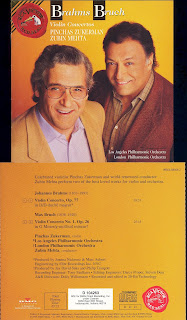 Steve Winwood [Refugees Of The Heart]
Steve Winwood [Refugees Of The Heart]
How do you define what genre of music Steve Winwood plays?, i guess it's Rhythm & Blues Rock!, but the guy goes all over the place, it's hard to pin him down, looking at his Wikipedia entry, he seems to have had a hand in everything, and also playing all sorts of instruments as well.
You know, writing about my favourite music forces me to examine things, and end up finding out things that i just didn't know about all sorts of Artist / Musicians / Composers / Works etc, well Steve Winwood was born in England in 1948, and i always thought he was American!, he even lives in England.
This album was recorded in 1990, i especially like the booklet cover, not too sure what it's trying to say, there's a drawing of a heart shape on a piece of paper, stapled to Winwood's shirt, i'll give you my interpretation, but i'm probably wrong!, you've heard the phrase 'wear your heart on your sleeve', to show your emotions openly, well maybe in this case it's not his sleeve, but right over his heart, or another interpretation is in the album title, someone wishing to escape his heart, because it's a dangerous place to be, but all he's left with is a poor substitute for the real thing, away from the real home where the heart truly belongs, it becomes a shallow imitation, a final interpretation is the false / fake heart that can easily be ripped / broken, disguises like a mask the true heart underneath, the one that's visually shown isn't real, the wearer doesn't mind it getting torn, it's a safeguard for the real inner heart, only those who look beyond the exterior, find the real heart hidden underneath.
I bought the cassette tape of this album in the early nineties, and it made an immediate impression on me, and i quickly went out and bought the disc album, it's been about three years since i last listened to this album, that's a fair amount of time, but on this listen it brought back memories of years gone by, i really liked most of the tracks especially track 5 'Another Deal Goes Down', but my favourite is the last track 'In The Light Of Day', it's a very long track, clocking in at 9:42, Winwood plays most of the instruments, it starts with fade in synthesiser keyboard programming [0:00+], and it's this vibe that goes through the whole track, the drums appear just over a minute in [1:22+] by Hashiri Johnson, four minutes in there's this instrumental section [4:00-6:49], which features Winwood playing a vibes solo [4:27-5:25], and then Randall Bramblett playing a Sax solo [5:29-6:49], and then Winwood comes in with the last verse,
On the street tonight
the innocent are dying
and the world's not right
so many millions crying
evil lives
and hate never gives
hell is never far
and is this all we are?
It's a great song, it has an irresistible urge to it, and it unfolds nicely as it has a bigger canvas to work on, a great closer.
Here's Steve Winwood singing 'In The Light Of Day' on YouTube.




























